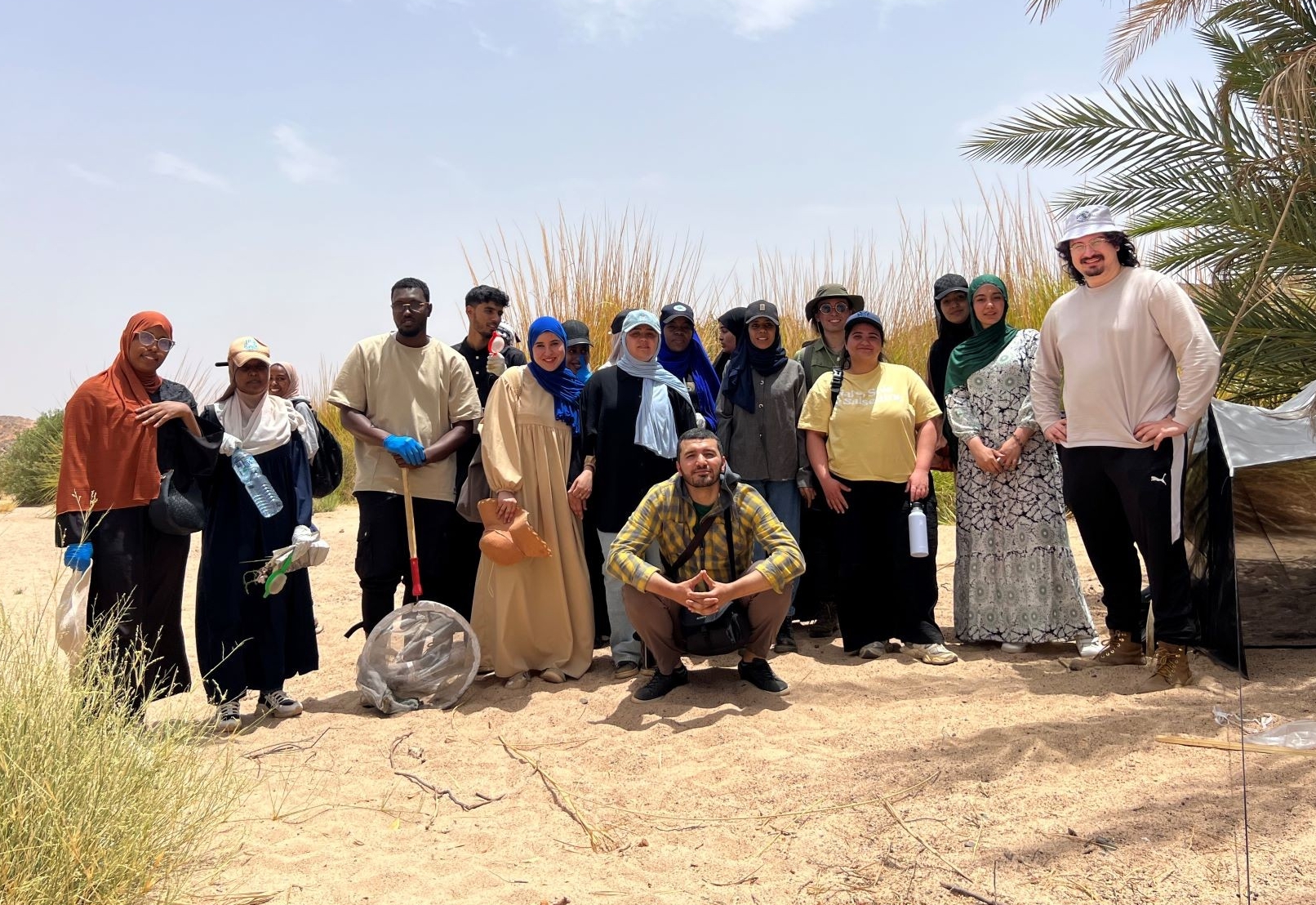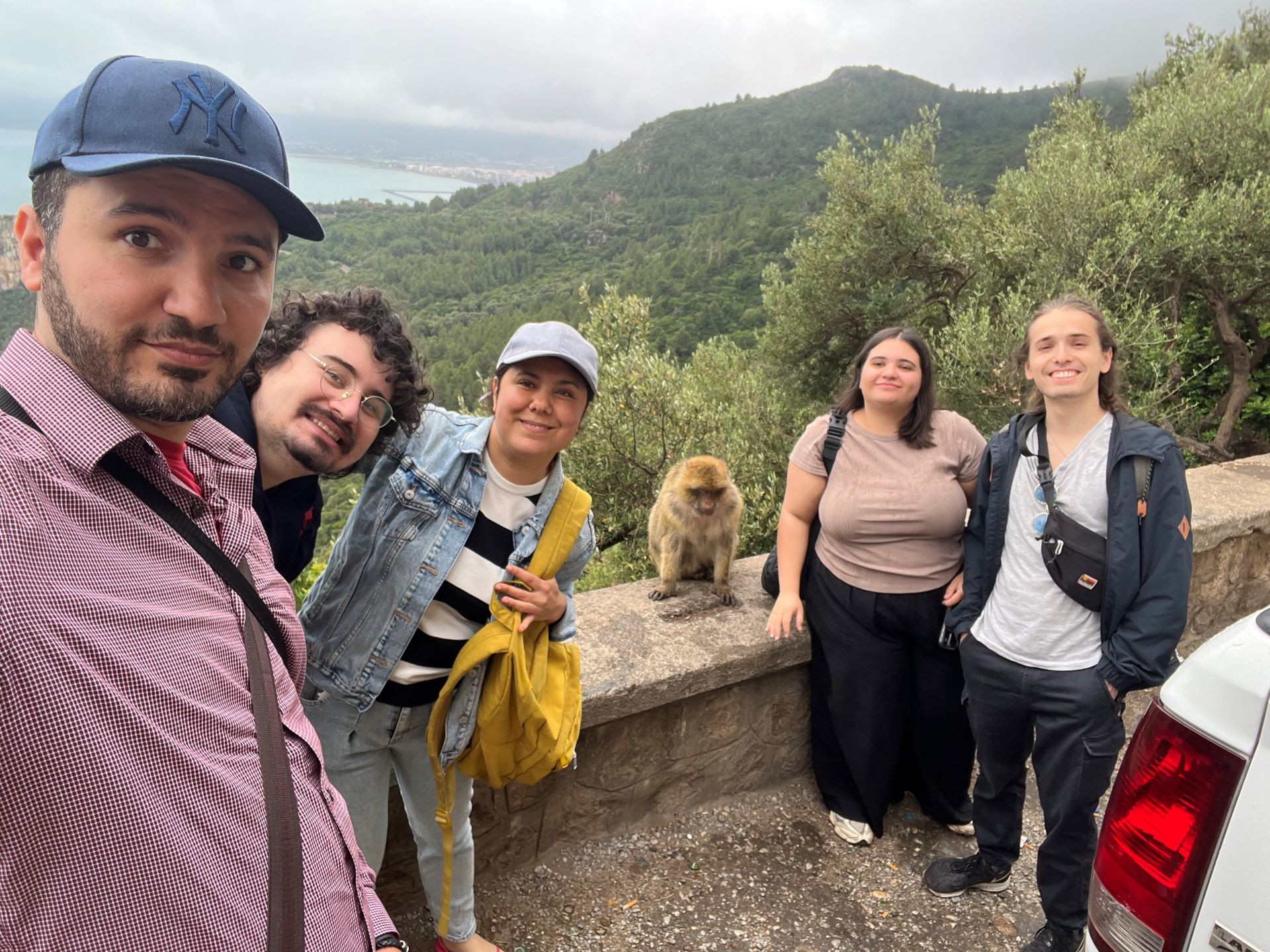In May 2025, a team of Concordia biology graduate students travelled to Algeria as part of an academic exchange that deepened international ties and advanced critical research on biodiversity. The initiative, rooted in a Memorandum of Understanding between Concordia and the University of Tamanrasset, also opened new doors for collaboration with the University of Abderrahmane Mira of Béjaïa.
Accompanied by their supervisor, Assistant Professor Rassim Khelifa, the group led workshops on insect sampling and biodiversity monitoring, while working side-by-side with Algerian faculty, researchers, and local community members.
“This exchange was an incredibly rewarding experience,” says Khelifa. “I deeply valued the opportunity to share knowledge across borders and to see our students grow through meaningful international collaboration.”
Doctoral candidate Jordi Vilanova i Broto (he/him) was among the students who took part in the exchange. Originally from Spain, he brought his ecological field experience to bear in both desert and urban environments, helping establish vital monitoring tools and studying endangered species in the region.
“Travelling to Algeria for an academic exchange was truly great,” says Vilanova i Broto. “Not only is Algeria the biggest country in Africa, with one of the most diverse mosaic of ecosystems, but it is also the home of some of the leading universities in the continent.”
In the southern city of Tamanrasset, the group helped install a malaise trap, a passive device used to track flying insect populations. Such monitoring tools are critical to understanding the global biodiversity crisis, especially in regions that are often overlooked in international assessments.
“Being able to set up a monitoring station there should be an incredible resource,” he says. “Working with local people to set up the trap was easy — everyone was overwhelmingly friendly and eager to lend a hand. It’s also a place that runs on desert time, where time seems to move slower and without trouble. Time spent lying in a Touareg tent flows at a different pace — something that we all need to experience at some point.”


 “Not only is Algeria the biggest country in Africa, with one of the most diverse mosaic of ecosystems, but it is also the home of some of the leading universities in the continent,” says doctoral candidate Jordi Vilanova i Broto.
“Not only is Algeria the biggest country in Africa, with one of the most diverse mosaic of ecosystems, but it is also the home of some of the leading universities in the continent,” says doctoral candidate Jordi Vilanova i Broto.
 “Algeria is the mix of some of the most fascinating and ancient cultures in the world,” Vilanova i Broto adds. “More people should visit and stay a while — the people, the food, the ecosystems… it’s unforgettable.”
“Algeria is the mix of some of the most fascinating and ancient cultures in the world,” Vilanova i Broto adds. “More people should visit and stay a while — the people, the food, the ecosystems… it’s unforgettable.”